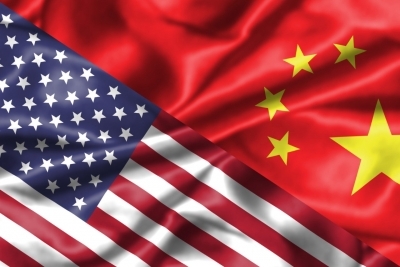
Raimondo, one of the influential Cabinet Members of the Biden Administration, visited China last week after months of rising tensions between the world’s two largest economies….reports Asian Lite News
The United States will not sell high-end sophisticated chips to the Chinese military, Commerce Secretary Gina Raimondo said on Sunday.
“We are trying to choke their military capacity. So, if they feel that, that means our strategy’s working. Certainly, on my watch, we are not going to sell the most sophisticated American chip to China that they want for their military capacity,” Raimondo told NBC News, as she appeared on a host of Sunday talk shows.
Raimondo, one of the influential Cabinet Members of the Biden Administration, visited China last week after months of rising tensions between the world’s two largest economies.

“Those are chips that are readily available around the world and are almost a commodity at this point. What we are going to do and we will not compromise on is preventing the sale of our most sophisticated, most powerful semiconductors to China, which China wants for its military,” she reiterated on CNN.
Describing it as a complex relationship, Raimondo said that it really cannot be boiled down to oversimplified talking points.
“No commerce secretary has been tougher than I on China. Almost a third of the companies from China on the entity list have been put there under President Biden’s administration and my leadership at Commerce,” she said.
“However, we want to have a narrow line around what is national security. You can’t use export controls for economic advantage. So, anyway, we’re never going to sell China our most sophisticated, advanced A.I. chips, which they want for their military,” Raimondo said.
She is the first commerce secretary in more than five years to be on the ground in China. “We have to be realistic about what we can and can’t accomplish on a first visit,” she noted, observing that it is in the world’s interest for the US and China to have a stable and significant commercial relationship.
“I met at the very high levels of the Chinese government, including the premier, and they recognize that. We have plenty of tools in our toolbox, in my case, export controls, outbound investment screening, tariffs, countervailing duties,” she said.
ALSO READ: Ramaswamy calls for ‘strategic clarity’ on Taiwan


